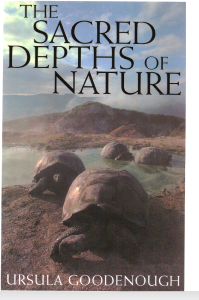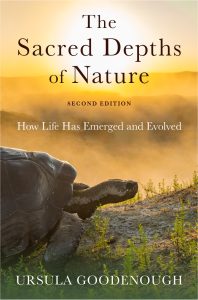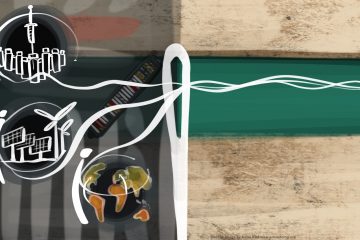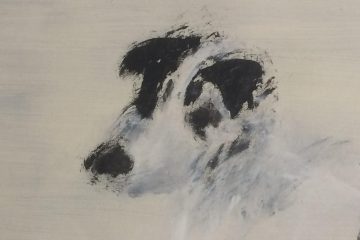Religious Naturalism, Emergence, and Science: A Counterpoint Conversation
Conversation Partners: Ursula Goodenough and Terrence Deacon


Biologist Ursula Goodenough published the first edition of The Sacred Depths of Nature in 1998. The second edition, published in 2023 by Oxford University Press, is extensively revised to incorporate the many changes in science, culture, and planetary perspectives that have occurred over the last 25 years. She and neuroscientist Terrence Deacon have written extensively about the philosophical / evolutionary idea of emergence in nature, a form of materialism in which novel and more complex levels of organization and life emerge out of levels “below” them, a way of getting something else from nothing but. In this conversation, Deacon and Goodenough will talk about what has changed in the last 25 years, what the implications are for these changes in terms of thinking about some type of a “religious naturalist orientation,” and what all this might mean for the future of the planetary community in an era of climate change and the attendant environmental issues.
Wednesday, September 6, 2023
Recording of Event
Watch the recording of the conversation via Counterpoint’s YouTube Channel here.
Ursula Goodenough is Professor of Biology Emerita at Washington University who retired to Martha’s Vineyard in 2017. She taught cell biology and evolution and engaged in research that focused on the sexual cycle of the green soil alga Chlamydomonas, on ciliary motility, and on algal biofuel precursors. She is a fellow of the American Academy of Arts and Sciences and the American Microbiology Society, a member of the National Academy of Sciences, and served as president of the American Society for Cell Biology. She and many others are developing what is called a religious naturalist orientation. A new edition of her book, The Sacred Depths of Nature: How Life Emerged and Evolved (Oxford University Press), describes her understandings of this orientation.
Terrence W. Deacon is Professor of the Department of Anthropology and member of the Helen Wills Neuroscience Institute at the University of California, Berkeley. His research combines developmental evolutionary biology and comparative neuroanatomy to investigate the evolution of human cognition, and is particularly focused on the explanation of emergent processes in biology and cognition. His acclaimed book, The Symbolic Species: The Co-evolution of Language and the Brain (W. W. Norton & Co., 1997) was awarded the I. J. Staley Prize for the most influential book in Anthropology in 2005 by the School of American Research. His book, Incomplete Nature: How Mind Emerged from Matter (W. W. Norton & Co., Spring 2011), explores the relationship between thermodynamic, self-organizing, evolutionary and semiotic processes and provides a new technical conception of information that explains both its representational and normative properties.



